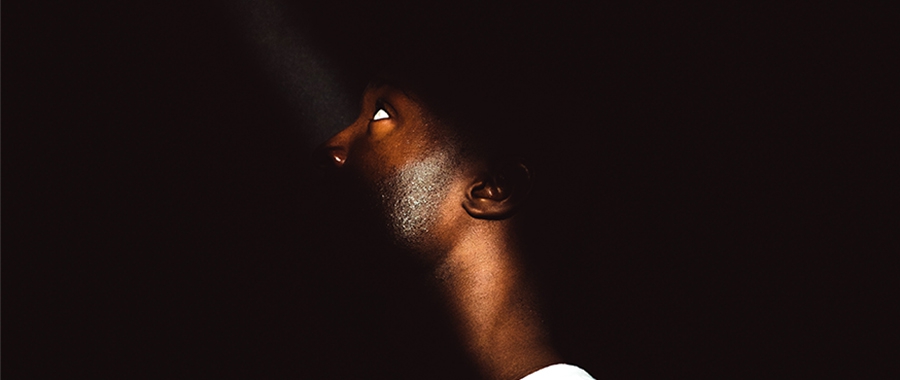The views expressed in our content reflect individual perspectives and do not represent the authoritative views of the Baha'i Faith.
The attributes of God—those deep spiritual qualities that draw our attention to aspects of His interaction with us and all of creation—are the traces of the essence of our Creator.
These divine attributes appear within the prayers and sacred writings of all religions in various forms, referring to God as the Almighty, the Powerful, the Helper, the All-Merciful, the Bestower, the All-Bountiful, the All-Knowing, the All-Wise, the Forgiving, the Compassionate.
Contemplating these attributes one by one allows us to focus on a particular characteristic of our Creator and look deep within ourselves. Understanding those holy attributes allows us to examine our own sense of inner strength, helpfulness, mercy, generosity, bounty, knowledge, wisdom, forgiveness, compassion.
These potential qualities within all of us reflect the attributes of God. They are, as the Baha’i teachings explain, God’s image within us: “To give and to be generous are attributes of Mine; well is it with him that adorneth himself with My virtues.” – Baha’u’llah, The Hidden Words, p. 39.
All together these qualities form the collection of virtues spiritual seekers try to incorporate into our lives.
We already know many of these virtues: kindness, excellence, faithfulness, generosity, honesty, justice, love, reverence, and unity, to name only a few. The prophets of God have repeatedly told us to strive to cultivate these qualities, because they benefit our individual spiritual development. These virtues also form the firm ground where we build successful families, and ultimately they construct the moral foundations of entire societies: “… in truth the fruit of human existence is the love of God, which is the spirit of life and grace everlasting.” – Abdu’l-Baha, Some Answered Questions, newly revised edition, p. 347.
If you’re not sure about the moral foundations the prophets provide, consider the example of Jesus Christ, described here by Abdu’l-Baha:
… although material advancement furthers good purposes in life, at the same time it serves evil ends. The divine civilization is good because it cultivates morals. Consider what the Prophets of God have contributed to human morality. Jesus Christ summoned all to the Most Great Peace through the acquisition of pure morals. If the moral precepts and foundations of divine civilization become united with the material advancement of man, there is no doubt that the happiness of the human world will be attained and that from every direction the glad tidings of peace upon earth will be announced. Then humankind will achieve extraordinary progress, the sphere of human intelligence will be immeasurably enlarged, wonderful inventions will appear, and the spirit of God will reveal itself; all men will consort in joy and fragrance, and eternal life will be conferred upon the children of the Kingdom. Then will the power of the divine make itself effective and the breath of the Holy Spirit penetrate the essence of all things. Therefore, the material and the divine, or merciful, civilizations must progress together until the highest aspirations and desires of humanity shall become realized. – Abdu’l-Baha, The Promulgation of Universal Peace, pp. 109-110.
Our spiritual qualities, then, come originally from the Creator. We seek spiritual growth and maturation when we consider, meditate on, pray about and try to adapt those qualities in our own hearts, minds and actions. The Baha’i teachings describe them, in this prayer, as “wondrous gifts:”
Praised be Thou, O Lord my God! Every time I attempt to make mention of Thee, I am hindered by the sublimity of Thy station and the overpowering greatness of Thy might. For were I to praise Thee throughout the length of Thy dominion and the duration of Thy sovereignty, I would find that my praise of Thee can befit only such as are like unto me, who are themselves Thy creatures, and who have been generated through the power of Thy decree and been fashioned through the potency of Thy will. And at whatever time my pen ascribeth glory to any one of Thy names, methinks I can hear the voice of its lamentation in its remoteness from Thee, and can recognize its cry because of its separation from Thy Self. I testify that everything other than Thee is but Thy creation and is held in the hollow of Thy hand. To have accepted any act or praise from Thy creatures is but an evidence of the wonders of Thy grace and bountiful favors, and a manifestation of Thy generosity and providence.
I entreat Thee, O my Lord, by Thy Most Great Name whereby Thou didst separate light from fire, and truth from denial, to send down upon me and upon such of my loved ones as are in my company the good of this world and of the next. Supply us, then, with Thy wondrous gifts that are hid from the eyes of men. Thou art, verily, the Fashioner of all creation. No God is there but Thee, the Almighty, the All-Glorious, the Most High. – Baha’u’llah, Baha’i Prayers, pp. 153-154.
















Comments
Sign in or create an account
Continue with Googleor